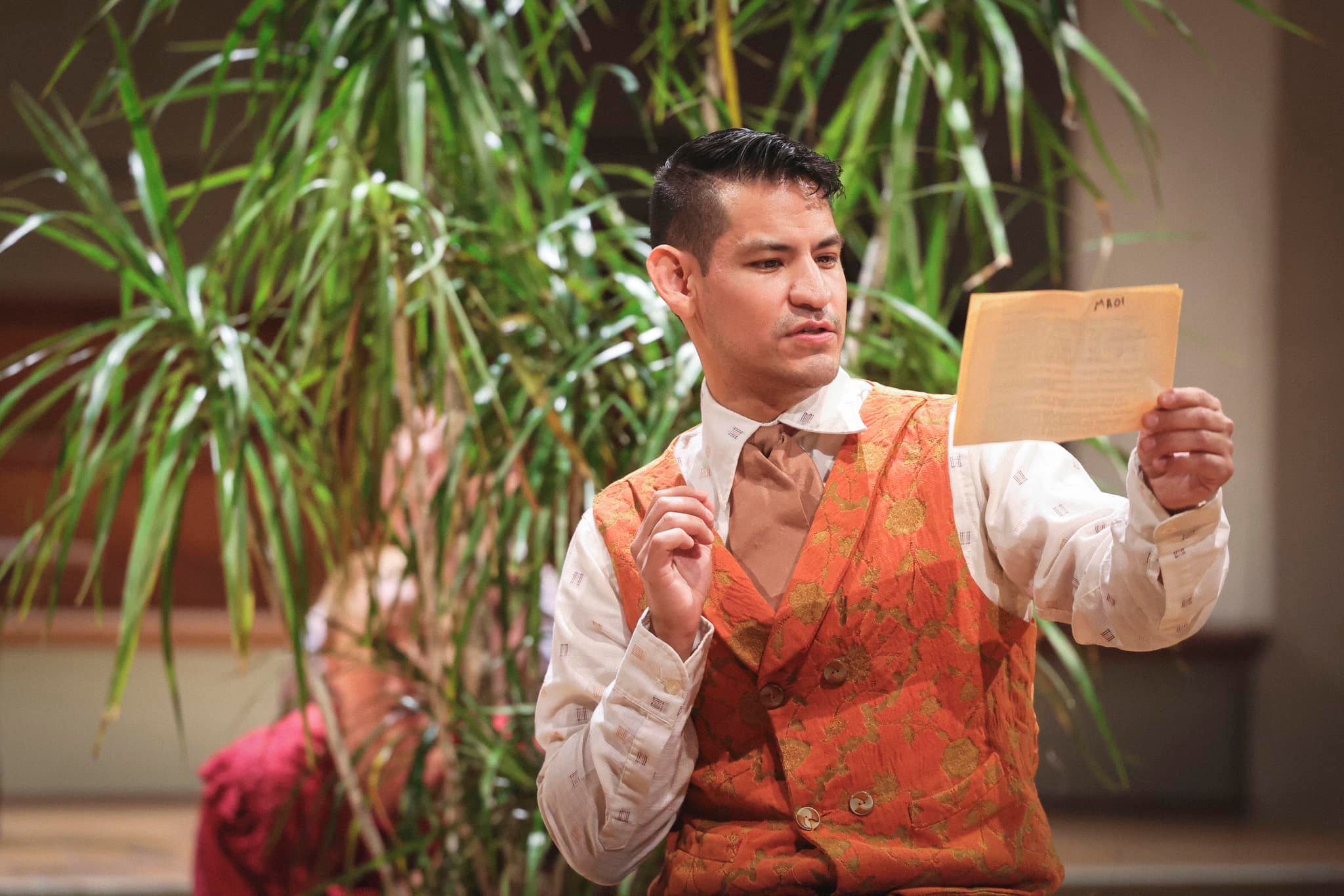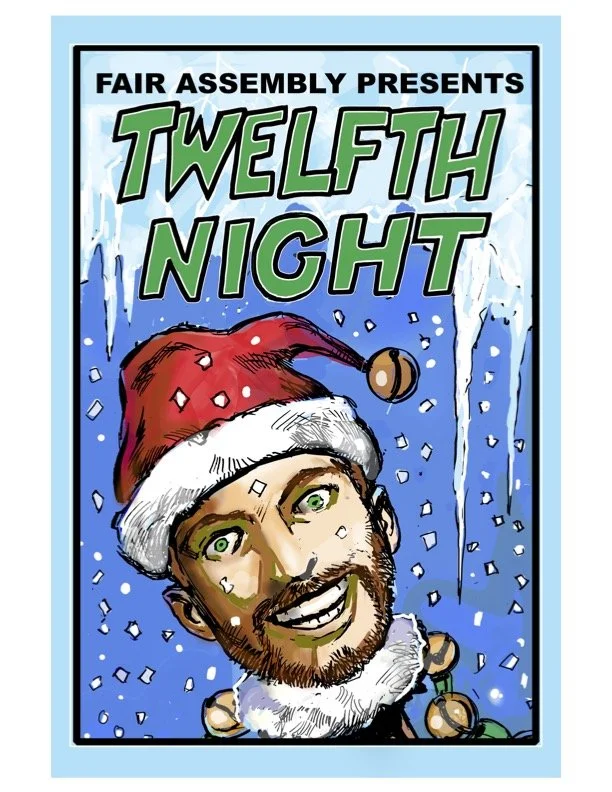
Twelfth Night
Feb 13-23 at
Arts Mission Oak Cliff
CAST
Orsino - Jon Garrard
Sea Captain/Priest/Officer -Owen Davis
Valentine/Officer - Sidney Floyd
Viola - Emily Ernst
Curio - Ava Robb
Sir Toby Belch - Austin Tindle
Sir Andrew Aguecheek - Christian Taylor
Maria - Caitlin Chapa
Olivia - Betsy Roth
Feste - David Helms
Malvolio - Blake Hametner
Fabian - Lauren Hayden Jordan
Sebastian - Eduardo Vélez III
Antonio - Brian Gibson
CREATIVE TEAM
Co-Directed by Sara Romersberger and Mac Welch
Original Music by Ivan Dillard
Fight Choeography +Movement by Sara Romersberger
Costume Design by Breianna Bairrington
Lighting Design by Joshua Manning
Text Coach Dr. Kyle Lemieux
Stage Managed by Danelle Morrow
Artwork by Bob Hall
Fight Captain Jon Garrard
Music Captain Eduardo Vélez III
Lectures on Twelfth Night
Presented by the Dallas Institute of Humanities and Culture
"Twelfth Night (Or What You Will)" is the last of Shakespeare’s insouciantly named comedies like "As You Like It" and "Much Ado About Nothing". All these titles sound like "Whatever you want". This play (from around 1601) marks his final exploration of this type of comedy before tragedies like Lear, Macbeth, Othello, and Antony and Cleopatra. The storm to come is felt at the core of the play.
Twelfth Night is set on the 12th day of Christmas (January 6th), not long from the "Feast of the Epiphany" (and intentionally, our first day of rehearsal). It's a day that signals the beginning of the carnival season and the end of Christmas. There is a topsy-turvy nature of this time of reveling, seen in the "Lord of Misrule"; a ruler appointed during Christmastide to preside over the "feast of fools". In this brief inversion of power, a person of lower status is elevated as a sort of mock-king. The custom was abolished by Henry VIII, but there are moments of this reveling (and the Malvolios of the world who hate it) in the play.
Our would-be ruler also becomes a mocked-one: Malvolio is more than willing to believe that the Lady Olivia is in love with him, and could elevate him to the status of a count. Alas, the letter he finds suggesting this potential is merely a cruel trick played on him by the waiting gentlewoman Maria. Humiliated by the discovery of the plot, Malvolio has one last line, before he exits the play: "I'll be revenged on the whole pack of you.”
Dr. Michael McShane suggested in an event with the Dallas Institute of Humanities and Culture that this play may predict what happens to the theatres at the hands of the actual puritans: they were shuttered for nearly twenty years. If Malvolio is "a kind of puritan" as is said of him in the play, this new order does indeed get revenge on the whole pack of us. If Antonio walks out of this play, backwards in time, into The Merchant of Venice; Malvolio walks out and into the office of Oliver Cromwell.
The word Epiphany is from Greek ἐπιφάνεια, epipháneia, meaning manifestation or appearance. Viola and Sebastian do indeed "appear" in Illyria as quickly love appears between the characters in the play. As Dr. Seemee Ali commented to me recently, Viola "rises from the ocean like Aphrodite". The way love appears or manifests is something this play grapples with, too. Viola, dressed as a boy, is in love with Orsino, who seems to love her back, but in her masculine attire. Whom does he love? I don't think the play answers this question. We never see her dressed as a woman after the first scene. Orsino is simply in love with the person.
There is a line in Twelfth Night, sung by Feste, who would have been played by the comic actor Robert Armin: "The rain it raineth every day". This line is echoed by another fool--also played by Armin--five years later in King Lear. We chose these plays this season especially to feature our company, but also because they felt thematically woven together. Perhaps this line about the constant storm, sung by one “wise enough to play the fool” is the thread."
-Emily Ernst, Artistic Director














